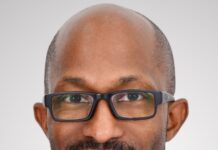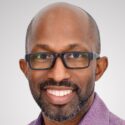 Of the more than 100,000 licensed architects in the United States, only 2 percent are African Americans.
Of the more than 100,000 licensed architects in the United States, only 2 percent are African Americans.
The National Council of Architectural Registration Boards (NCARB) has published new data to help inform essential discussions about equity, diversity, and inclusion in the profession. For the first time, the NCARB has provided data on passage rates for the Architect Registration Examination (ARE). The ARE, which is administered by the NCARD, is a six-part exam taken by candidates seeking architectural licensure and is required by all state licensing boards in the United States.
NCARB analyzed the pass rates from more than 32,700 ARE exam participants, studying information on race, ethnicity, gender, and age. NCARB explains that passage rate data will “help inform essential discussions about equity, diversity, and inclusion in the profession, including the current licensure framework.”
Overall the pass rate was 55 percent. This varied among the six sections of the examination from a high of 66 percent in construction and evaluation to a low of 44 percent in project planning. The Black passage rate was lower than the passage rate for Whites on all six sections of the examination. In some cases the disparity was huge. The Programming & Analysis division, which focuses on evaluating a project’s requirements and constraints, has the largest disparity: White candidates’ pass rate is 38 percentage points higher than their Black or African American peers. On the Construction and Evaluation section of the examination, the White passage rate was 75 percent, compared to the Black passage rate of 45 percent. In the Practice Management division, White candidates’ passage rate is 27 percentage points higher than the passage rate for Blacks.
For most races/ethnicities, men outperformed women on all six exam divisions. The exception was candidates who identify as Black or African American. Black women had higher pass rates than their Black male counterparts on four of the six ARE divisions.
NCARB’s data science and examination teams have been actively working to understand the causes of testing disparities. Jared Zurn, vice president for examination at NCARD said that “while there is always more NCARB can do to ensure our programs are fair and accessible, we cannot do it alone. We are calling on firms, academia, test-takers, and the entire architecture profession to help us resolve disparities and continue this serious, but necessary conversation about the path to licensure.”











Architect isn’t the only profession having this issue. Blacks not passing licensing exams is an issue with most professions that require a license to practice like social work. Algorithms for the testing software that is used can also be programmed to be biased against certain minority groups.
@ Dr. Yazeed
Is the disparity in passing these exams between Black male and female the same across the board?
“Algorithms for the testing software that is used can also be programmed to be biased against certain minority groups.”
PURE NONSENSE
Where’s the evidence to support these claims you’re making?
@Marcus The author should have included citations. You can go to NCARB’s website.
Here is their annual report
https://www.ncarb.org/nbtn2021
Additionally, there is this report, Baseline on Belonging: Equity, Diversity, and Inclusion in Architecture Licensing
https://www.ncarb.org/sites/default/files/BOB_ExperienceReport.pdf